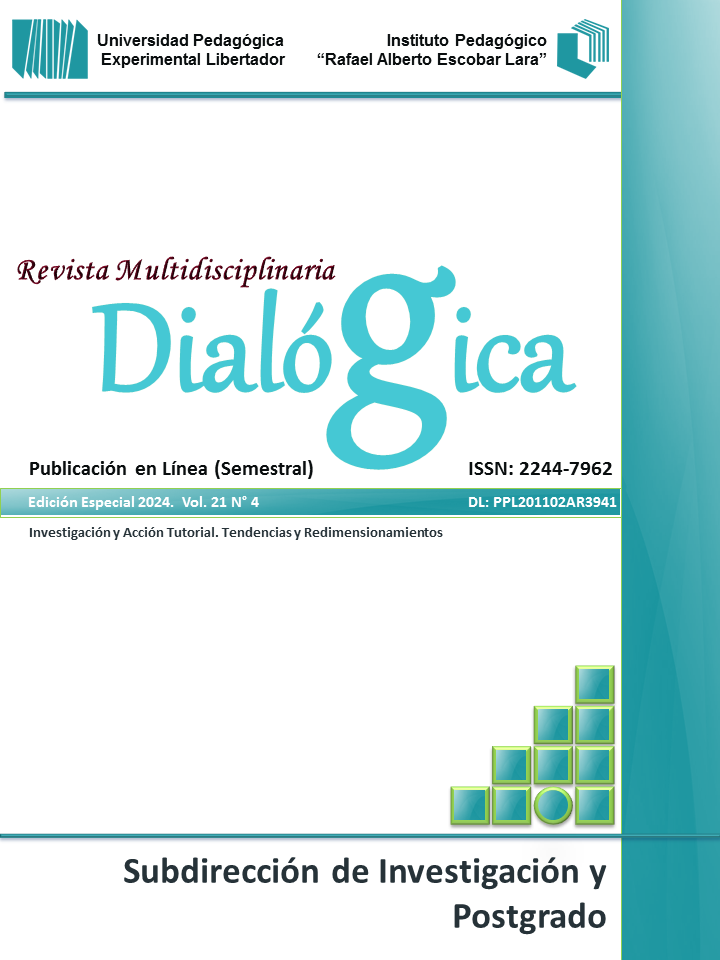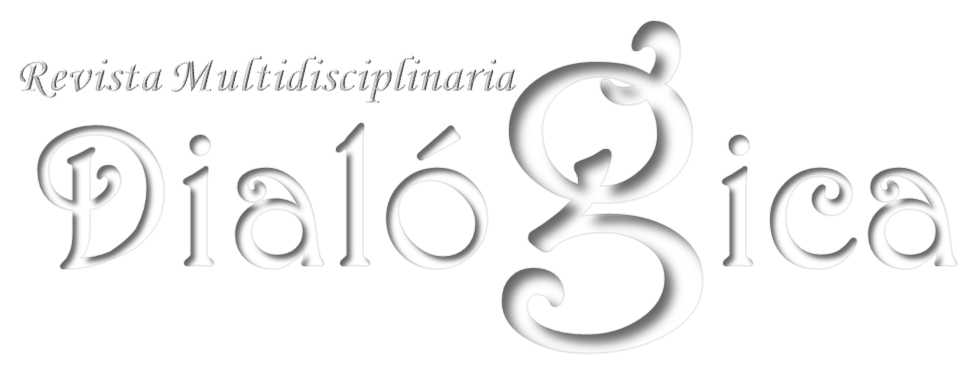ACADEMIC TUTORING FROM DISRUPTIVE THINKING IN THE DEVELOPMENT OF INDEPENDENT RESEARCH WORK
DOI:
https://doi.org/10.56219/dialgica.v21i4.3317Abstract
In this essay, the tutor's capacity is glimpsed in awakening disruptive thinking in future researchers from a biophilic perspective, facilitating answers to their concerns in the tutorial process and thus obtaining a successful production. The purpose of the article is to describe the profile of tutors in their tutorial action. To do this, specialized literature was used such as Claret Veliz (2011), where he points out how to be an effective and efficient thesis tutor, Hermoso (2023) with his enactive turn, tendency in doctoral seminars, and Ríos (2017) with disruptive thinking. Being a documentary investigation, we worked under the interpretive paradigm, to capture a Hermeneusis through all those foreign ideas provided by these authors, obtaining our own updated ideas about that important work carried out by the figure of the tutor, and where the main author is the disruptive thinking on which it is necessary to emphasize.
References
Bower, J. L. y Christensen, C. M. (1995). Disruptive technologies: Catching the wave. Harvard Business Review, 73(1), 43-53.
Domínguez, L. (2019, 22 agosto). El pensamiento disruptivo se puede entrenar si cambias tus comportamientos. Medium. https://luchodominguez.medium.com/disruptive-thinking-o-c%C3%B3mo-generar-productos-radicales-para-cambiar-el-mundo-b82ec3e86b99
Gaspar Cobarrubias, M. J. (2016). El investigador independiente. EFACICO. Portal del Egresado de la Facultad de Ciencias de la Comunicación. efacio.com
González y Achiong (2018). La labor tutorial y su impacto en la formación científico-investigativa inicial del docente. Pesqui.
Hermoso, V. (2020). Acción Tutorial en el campo de la tecnología: principios. San VEINTE Joaquín de Turmero, Venezuela: Universidad Bicentenaria de Aragua.
Hermoso, V. (2021). Avíos para confinados en UBA-DIEP (Ed.), Veinte lecciones en la formación tutorial, 7, 7–14.
Ríos, M. D. (2017). Pensamiento disruptivo. NovaGob. https://red.novagob.org/pensamiento-disruptivo/
Ruiz, C. (2005). Enfoque estratégico en la tutoría de la tesis de grado: un modelo alternativo para aprender a investigar en el Postgrado. Revista Sapiens. 6 (1). 61-83.
Ruiz, C. (2014). Cómo llegar a ser un tutor competente. Santillana.
Terán, G, (2012). Los trabajos de grado y niveles de productividad en los postgrados: aproximación teórica de seguimiento tutorial. Eidos.
Torrealba, M., Mendoza, J. y Montes, M. (2016). El fluir emocional del investigador: una visión desde la biología social relacional. Revista REDINE. 8(1). http://bibvirtual.ucla.edu.ve/db/psm_ucla/edocs/REDINE/Vol8especial/Vol8N11.pdf
Veliz, A. C. (2011). Tutores y tesistas exitosos (8a. ed.). Librería Virtual.
Downloads
Published
How to Cite
Issue
Section
License
Copyright (c) 2024 Norys Marina Granado

This work is licensed under a Creative Commons Attribution-NonCommercial-ShareAlike 4.0 International License.


 @revistadialogica
@revistadialogica DialogicaUPEL
DialogicaUPEL RevistaDialogicaUPELMaracay
RevistaDialogicaUPELMaracay dialógicaupel@gmail.com
dialógicaupel@gmail.com dialogicaupel.blogspot.com
dialogicaupel.blogspot.com https://issuu.com/dialogicaupel
https://issuu.com/dialogicaupel https://revistas.upel.edu.ve/index.php/dialogica/
https://revistas.upel.edu.ve/index.php/dialogica/









